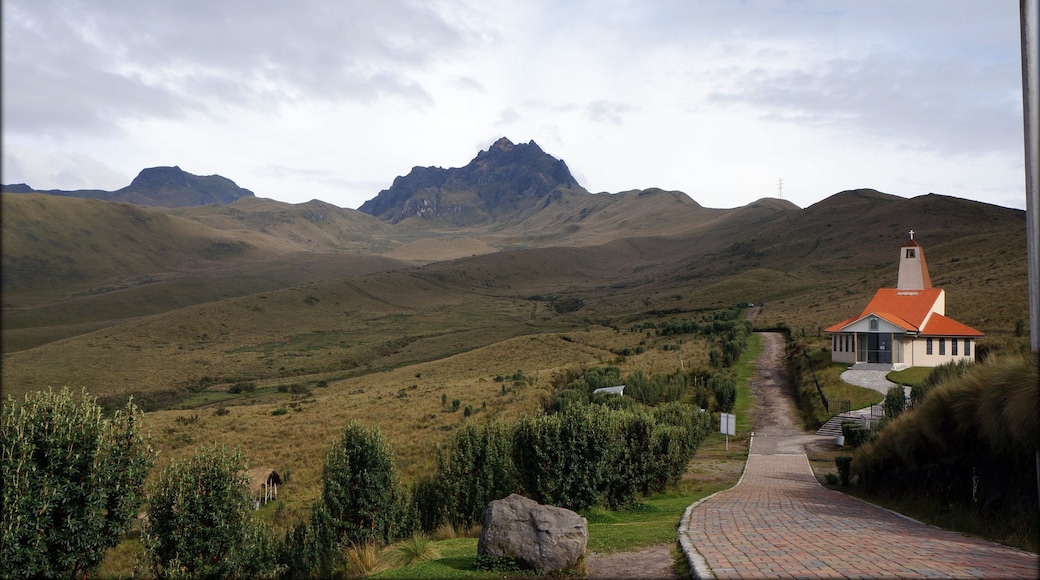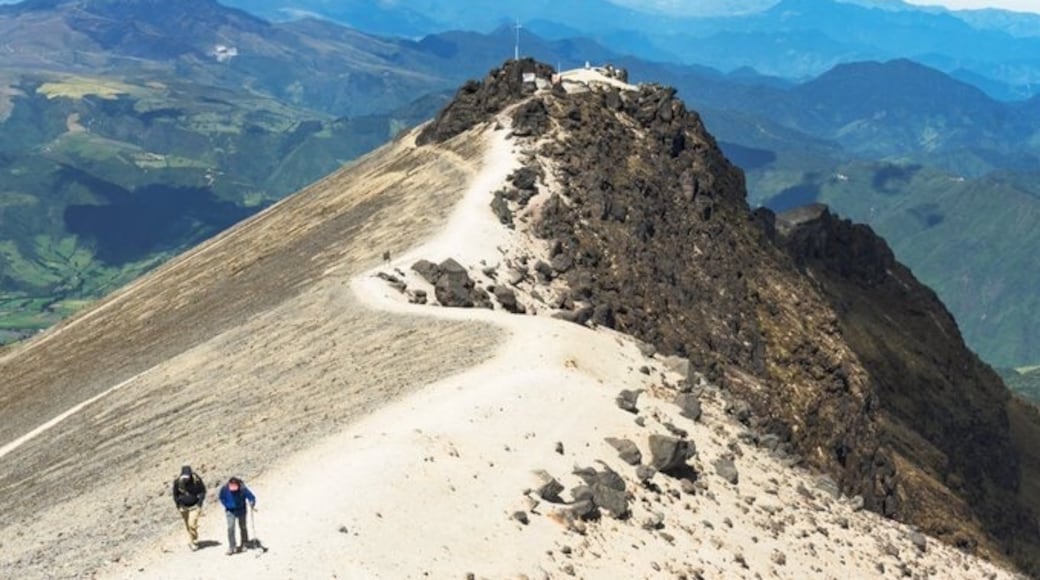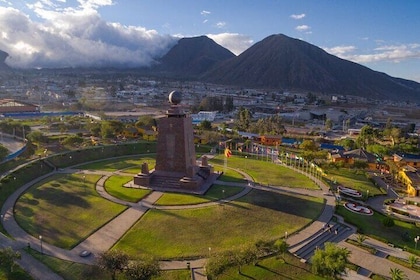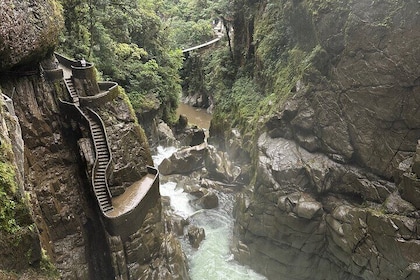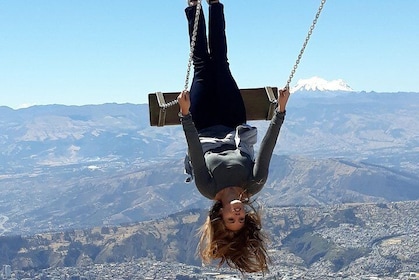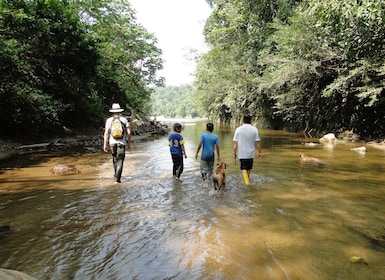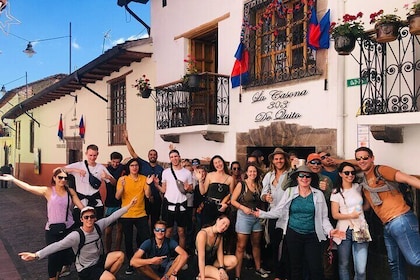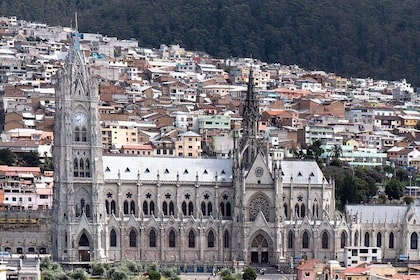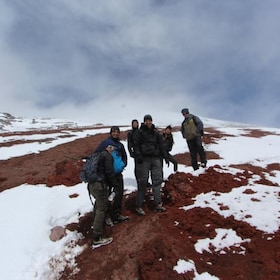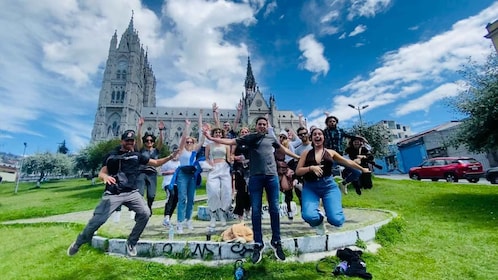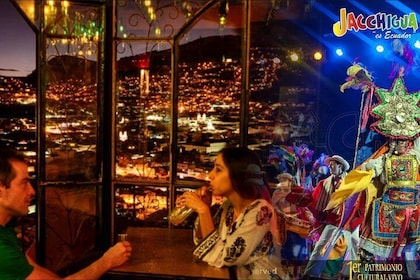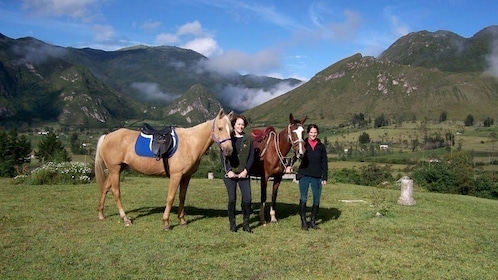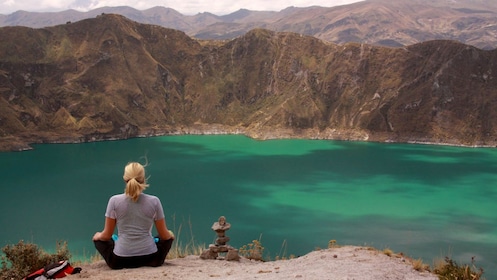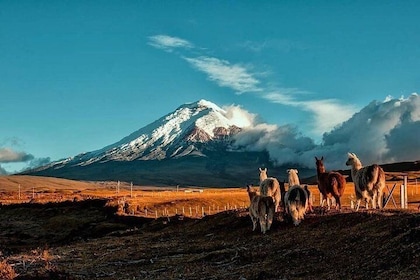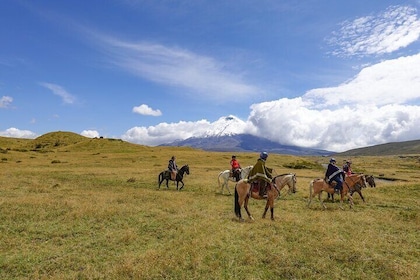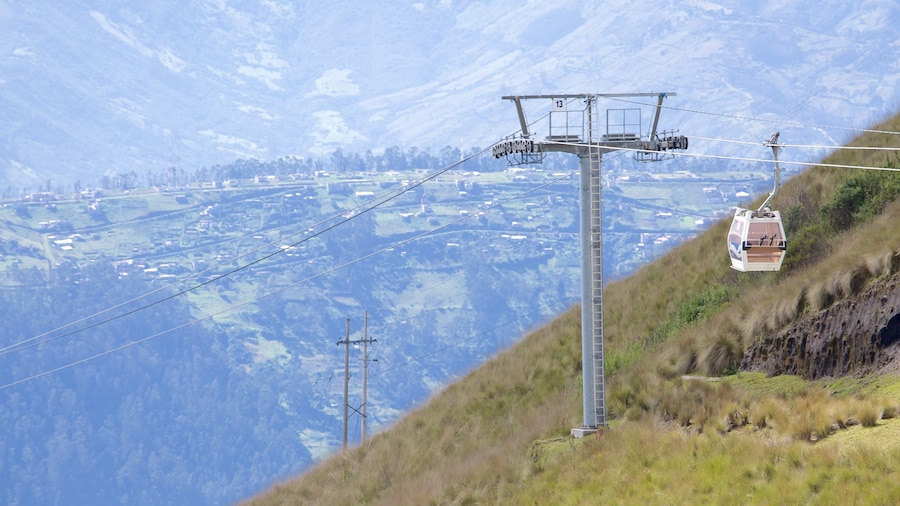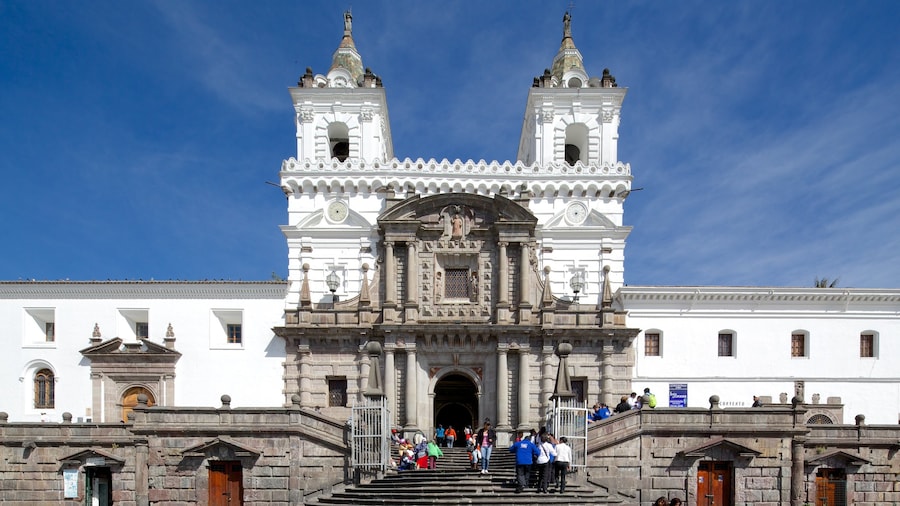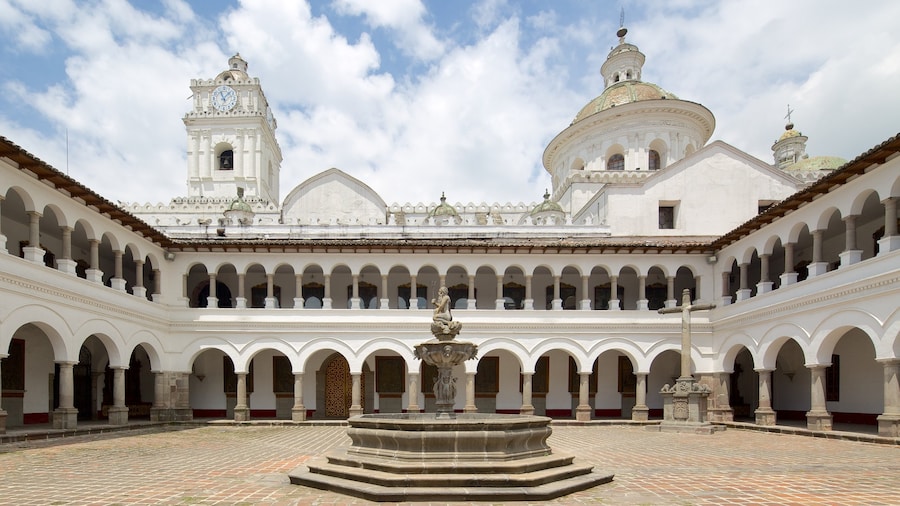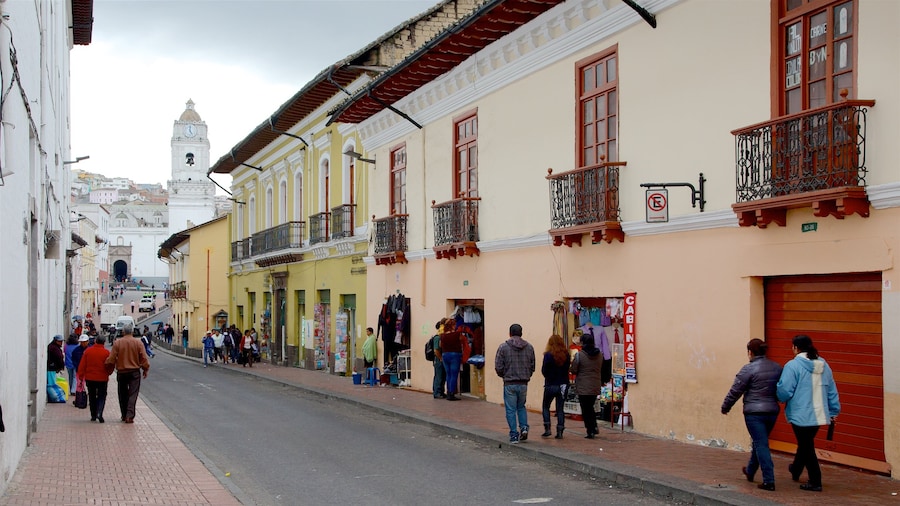Just outside of Quito lies Pichincha, an active volcano with two peaks. Take a four-wheel drive to the peaks and observe beautiful views of the valley all the way to Quito on the volcano’s eastern slopes. Visitors who are more active can hike to the summit of the two peaks or embark on an adventurous mountain bike ride around the face of the volcano.
The volcano’s two peaks are named Guagua, which means “child” in indigenous Quechua, and Rucu, meaning “old person.” Standing at 15,696 feet (4,784 metres) and 15,413 feet (4,698 metres) respectively, Guagua and Rucu dominate the city’s western landscape. Access the stunning peaks of Pichincha by four-wheel drive from the small village of Lloa, where a dirt road leads directly to the Guagua summit. If you prefer more physical adventures, climb Guagua accompanied by a local guide. The hike takes approximately 4 hours, and a small refuge about 20 minutes from the peak offers lodging and refreshments. Climb Rucu, the inactive volcano peak, from Cruz Loma lookout in about 3 hours. Cruz Loma is easily accessible by the TelefériQo (gondola).
Take in magnificent views from atop Pichincha, stretching across the other peaks in the Andes mountain ranges to Padre Encantado and Condor Guachana. Guagua’s last major eruption occurred in 1999 and coated the city with a layer of ash. The volcano is historically significant to Ecuador because it was the site where Antonio José de Sucre led and won the Battle of Pichincha and secured the territory’s independence from the Spanish colonial army.
Pichincha is located approximately 6.2 miles (10 kilometres) west of Quito. Four-wheel drive tours, guided hikes and mountain bike trips can be arranged in the city. Smaller mountains nearby, such as Antenas or Condor Guachana, are also great spots for hiking and mountain biking. Ensure you are properly equipped for the trip. Pack adequate water, wear appropriate footwear and take some time beforehand to acclimatize to the altitude in Quito.
